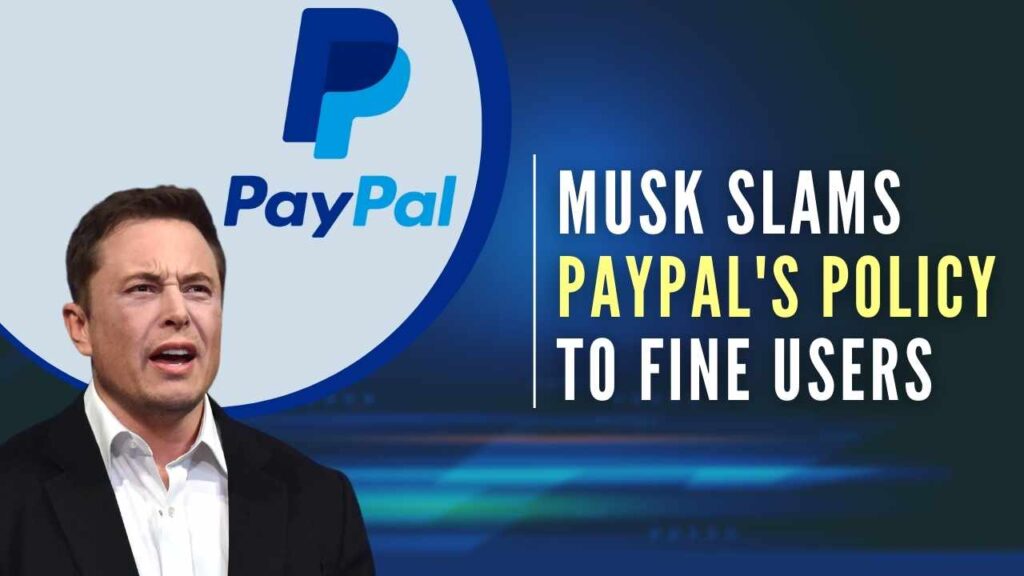Elon Musk Slams PayPal’s ‘New Policy’ to Fine Users
Last week, according to a number of media sources, PayPal issued a new policy update prohibiting users of its services from engaging in actions it defined as “sending, publishing, or publication of any messages, content, or materials” disseminating misleading information.

According to reports, the policy change, which stated that users could be required to pay charges of $2,500 for every breach, was set to take effect on November 3. After receiving a barrage of condemnation from a number of well-known people, including the company’s former president, David Marcus, PayPal hastily apologized for what it termed “confusion” and claimed it was all just an oversight.
David Marcus, the former President of PayPal, criticized the new policy change on Twitter, noting that it runs against everything he believes in.
Marcus noted in his tweet, “A private company now gets to decide to take your money if you say something they disagree with. Insanity”.
Elon Musk, the co-founder of PayPal and the CEO of Tesla responded “Agreed” in response to Marcus’s tweet.
Musk, the CEO of Tesla and SpaceX, co-founded the online bank X.com in 1999. In 2000, X.com and Confinity merged to become PayPal. PayPal was purchased by the online auction site eBay in 2002 for $1.5 billion. eBay separated it in 2015.
Musk, who has reopened negotiations to purchase Twitter for over $44 billion, has also stated a desire to create a super app called X.com that will be accessible to everyone worldwide, similar to China’s WeChat.
On Monday, PayPal announced that it will not penalize users for false information and that a previous policy update stating that users would be required to pay damages of $2500 was sent incorrectly. The update, which PayPal claimed contained inaccurate information, provoked severe outrage on social media. The shares of the California-based corporation fell by about 6%.
The company states, “An acceptable use policy (AUP) notice recently went out in error that included incorrect information. PayPal is not fining people for misinformation and this language was never intended to be inserted in our policy.”
According to Google Trends data, global searches for “delete PayPal” increased by 1,392% after the update revelation and the company’s subsequent apologies.
PayPal has found itself in several controversies this year. On September 15, PayPal removed two right-leaning organizations from its platform in the UK. They were a campaign organization called The Free Speech Union and a news website called ‘The Daily Sceptic’. After a public outcry that reached Parliament, the accounts were subsequently reinstated.
Recently, Paypal also banned Gay Against Groomers, a group of LGBT individuals opposed to the sexualization and gender transformation of minor children.
This occurs during a crucial phase for PayPal. This year, pressure on tech and fintech companies as well as more specialized difficulties for businesses has caused PayPal shares to lose more than half of their value.
In order to adjust expectations to the new economic realities, the corporation lowered its prediction numerous times throughout 2022. Additionally, PayPal executives admitted that they had overestimated how pandemic-era trends would continue once the world reopened.
PayPal is a multinational financial tech company that operates an online payment platform in most countries that permit online money transfers. The business processes payments for internet retailers, auction sites, and several other business users for a fee.

I am a law graduate from NLU Lucknow. I have a flair for creative writing and hence in my free time work as a freelance content writer.